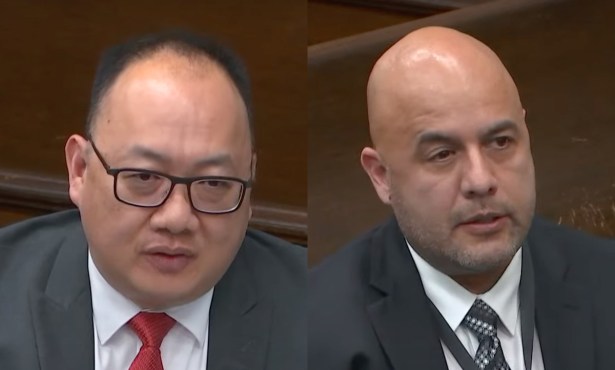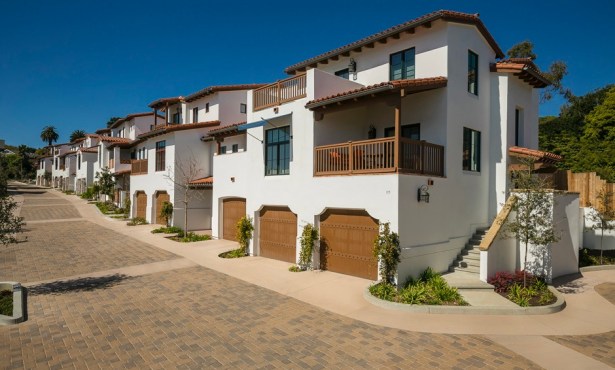Housing vs. Hotel Showdown Looming in Santa Barbara
Could City Bed Tax Revenues Be Siphoned to Subsidize Affordable Housing?

With Santa Barbara’s hotels now 80 percent full and bringing in — on average — $130 more per room per night than they did in 2019, it’s little wonder that the South Coast’s hotel market has reached a state of permanent explosion. It’s little wonder, too, that there are now between 500 and 1,000 new hotel rooms poised to jump off their various drawing boards and open their doors for customers. Even less wonder is that Rob Fredericks, executive director for the City of Santa Barbara Housing Authority, is champing at the bit to tap into the some of the bed tax revenues — more officially known as Transient Occupancy Taxes — to build capital “A” affordable housing.
With city’s bed tax revenues projected to weigh in significantly higher than initially projected for this year — $31 million, Fredericks said, as opposed to the $27.2 million budgeted — Fredericks is hoping to persuade city councilmembers and administrators to set aside $5.1 million of that gravy for housing efforts. Fredericks said that “$5.1 million may not sound like a whole lot, but I can leverage that 10-to-1 with tax credits and loans. With $50 million, we can make a dent.”
City budget director Keith DeMartini said he could not confirm Fredericks’s $31 million estimate but did say revenues are expected to be significantly higher than initially projected.
Fredericks recognizes he’s facing a serious uphill climb. For the past three years, COVID took a heavy toll on the bed taxes and sales taxes on which City Hall disproportionately relies. City administrators were forced to dip into reserves for the past three years and, as a result, are now projecting budget deficits for the next three. Many staff positions have been left intentionally vacant to cut costs; employees who remained on the job have now gone several years without cost-of-living adjustments, let alone raises. Many experienced employees are leaving to take jobs elsewhere; finding replacements has proved challenging in the extreme.
Fredericks said he recognizes these problems are serious and real. But he doesn’t want to wait. “I’m tired of talking about how housing is our number-one problem and just wringing our hands,” he said. “We need to do something.”
If need be, Fredericks said he’d support collecting the signatures needed to take a bed tax increase before city voters. The nexus, he said, is obvious. Hotels rely largely on low-income workers. If hotels want a reliable employee base, far more below-market rental housing must be built. And right now, City Hall is legally on the hook to allow for the development of 8,000 new housing units to address what state housing officials have deemed is Santa Barbara’s fair share of the statewide housing deficit.
Sign up for Indy Today to receive fresh news from Independent.com, in your inbox, every morning.
A 2 percent bump in the bed tax rate would provide a modest but steady revenue stream to allow City Hall — in partnership with the Housing Authority — to chip away at what seems like a monstrously unattainable goal, Fredericks stated. Simply allowing developers to fill the void by building market-rate units, he added, won’t come close to cutting it.
When Fredericks begins his power meet-and-greets in earnest, his pitch is likely to generate mixed reactions.
“From a policy point of view, you can’t oppose it. Clearly, we need a sustainable and reliable revenue stream for housing,” said City Councilmember Eric Friedman, “but it’s complex.”
City Hall has many competing financial needs, Friedman cautioned, and local governments can only ask voters to dip into their pockets so many times. In addition, he noted, the County of Santa Barbara is contemplating putting a library tax before voters in 2024. Two measures on the same ballot could serve to diminish the chances of success for both. Even so, the appeal of a bed tax bump is obvious: Local voters would be asked to approve a measure that would be paid by out-of-town visitors.
Other councilmembers balked at Fredericks’s logic. One described current bed tax levels as “an aberration” and dismissed the notion of a “surplus” as a “misnomer.” One suggested Fredricks would do better to push for a slight bump — a quarter of a percent — in the sales tax. It’s a smaller hit on a much larger group of people and would generate far more money. A back-of-the-envelope calculation, stated budget director DeMartini, suggests such an approach could yield $7 million a year in revenues.
But sales tax measures are also harder to pass: Local voters would bear the fiscal burden. Such proposals are typically blasted by liberals and Democrats for being “regressive,” meaning their burden falls disproportionately on those with less means.
Currently, hotel and motel clients are charged 12 percent in city taxes in addition to their hotel room rate. Of that, 10 percent goes to the general fund and 2 percent to a segregated fund to keep city creeks clean and restored. The last time City Hall increased its bed tax rate was 1987, when the choice was that or laying off cops. In 2000, voters approved the additional set-aside for creeks.
In 2012, the governor and the state legislature abolished redevelopment agencies throughout the state, arguing they siphoned off tax revenues that would otherwise go to school districts. In the intervening 10 years, no substitute has emerged to make up for the lost housing dollars — roughly $5 million a year — that the City of Santa Barbara’s Redevelopment Agency contributed. This bed-tax bump, Fredericks has argued, would be a step in the right direction.
In the meantime, however, many councilmembers worry that the proliferation of new hotels has become too much of a good thing. Later this summer, the council will discuss a possible moratorium on new hotels, the argument being that too frequently developers are favoring new hotels over new housing on land that’s zoned for both.
Support the Santa Barbara Independent through a long-term or a single contribution.




You must be logged in to post a comment.